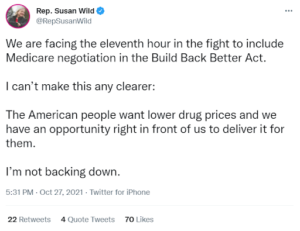This week, Florida Governor Ron DeSantis called on the state Supreme Court to empanel a grand jury to investigate the COVID-19 vaccinations, despite the fact that a recent study showed COVID-19 vaccines saved millions of lives in the United States. This comes after a years-long effort to undermine scientists, spread disinformation, and prolong the pandemic in order to hurt Democrats and the Biden administration politically. Coverage indicates this is a purely political move to pander to right-wing conspiracy theorists ahead of his rumored presidential campaign in 2024. DeSantis has made it clear he cares more about his own political career than the health and safety of his constituents.
The Bulwark: DeSantis Sucks Up To The Anti-Vax Crowd. “As he seeks to elevate his profile further and distinguish himself from potential 2024 presidential rivals, DeSantis is sucking up to the anti-vax crowd and styling himself as a crusader against what he calls the “biomedical security state.” And, like most of DeSantis’s political stunts, his overtures to the fringe are pretty cringey… Since his appointment, Ladapo has found himself mentioned in the news for making the rounds on conspiracy-themed conservative podcasts. The people of Florida deserve better from their surgeon general. And on the part of Gov. DeSantis, the selection of and reliance on Ladapo demonstrates not an admirable desire to encourage unconventional thinking but rather a desperate wish to kiss up to cranky, conspiracist anti-vax voters.” [The Bulwark, 12/15/22]
NBC News: Ron DeSantis Outflanks Trump On The Right With His Call For COVID Vaccine Probe. “At a roundtable he convened of Covid vaccine skeptics and opponents — including his own surgeon general — he formally called on the state Supreme Court to impanel a grand jury to investigate whether pharmaceutical companies criminally misled Floridians about the side effects of vaccines, a position at odds with the Centers for Disease Control and Prevention… The decision by DeSantis to now investigate the vaccines was widely panned by those in Trump’s orbit.” [NBC News, 12/13/22]
Vox: Ron DeSantis’s Vaccine “Investigation” Is All About Beating Trump. “Florida Gov. Ron DeSantis, who is widely expected to run for president in 2024, is escalating his campaign to discredit the Covid-19 vaccines, the drug companies that produced them, and the public health officials and government leaders who urged Americans to get them. Florida under DeSantis has been home base for anti-vaccine, anti-mask, and anti-lockdown policies in the past three years… Florida Gov. Ron DeSantis, who is widely expected to run for president in 2024, is escalating his campaign to discredit the Covid-19 vaccines, the drug companies that produced them, and the public health officials and government leaders who urged Americans to get them.” [Vox, 12/15/22]
Politico: DeSantis Calls For Grand Jury To Investigate COVID-19 Vaccines. “Gov. Ron DeSantis on Tuesday asked the Florida Supreme Court to empanel a grand jury to investigate “wrongdoing” linked to the Covid-19 vaccines, including spreading false and misleading claims about the efficacy of the doses… He sought to undermine the efficacy of the Covid vaccine and claimed that vaccine manufacturers such as Moderna have made a fortune on Covid-19 mandates… DeSantis has built a national reputation fighting against Covid-related mandates such as vaccine requirements or schools ordering students to wear masks.” [Politico, 12/13/22]
The Washington Post: DeSantis Forms Panel To Counter CDC, A Move Decried By Health Professionals. “DeSantis’s press office accused pharmaceutical companies and the Biden administration of pushing the distribution of mRNA vaccines “through relentless propaganda while ignoring real-life adverse events.” Ladapo joined that criticism, and said the state would work with the University of Florida to study autopsy results in cases of “sudden deaths of individuals that received the COVID-19 vaccine in Florida.”” [The Washington Post, 12/13/22]
Business Insider: DeSantis Latest Anti-COVID-19 Vaccine Pust Puts Him On A Collision Course With Trump Over The Pandemic. “DeSantis held a 90-minute roundtable with COVID vaccine skeptics and asked the Florida Supreme Court to set up a statewide grand jury to investigate “crimes and wrongdoing” related to the COVID-19 shots, weaponizing life-saving vaccines ahead of a potential fight with not just Trump but President Joe Biden… DeSantis is seen as one of Trump’s most formidable opponents in a hypothetical presidential matchup. In a USA Today-Suffolk University poll released Tuesday, DeSantis led Trump by 23 points among Republicans.” [Business Insider, 12/13/22]
Huffpost: DeSantis, Who Once Praised Vaccines, Now Wants Them To Prosecute Those Who Pushed Them. “Two years after mounting an aggressive campaign to vaccinate Floridians against COVID and a year after praising their efficacy, Gov. Ron DeSantis now wants to prosecute those who pushed the vaccines… The move puts DeSantis squarely on the side of the anti-vaccination activists in the Republican voting base and, more generally, a broader GOP effort to demonize retiring White House medical adviser Dr. Anthony Fauci and other mainstream medical experts ahead of an expected presidential run in 2024.” [Huffpost, 12/13/22]


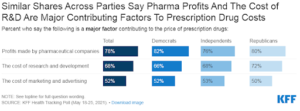
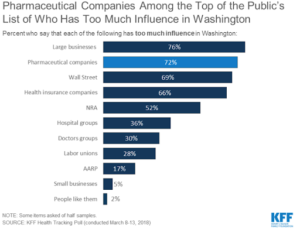

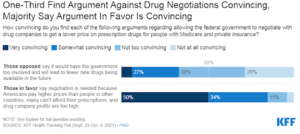


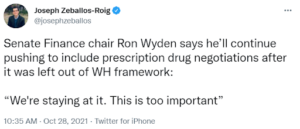

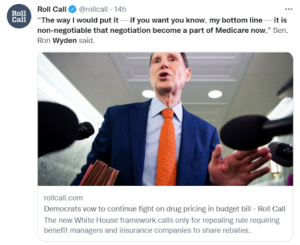
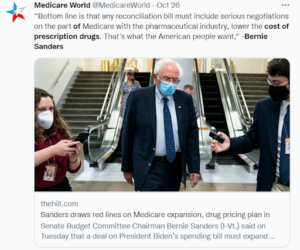
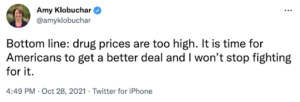
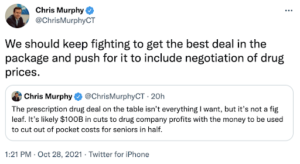 Representative Susan Wild (D-PA-07): “I’m not backing down.”
Representative Susan Wild (D-PA-07): “I’m not backing down.”